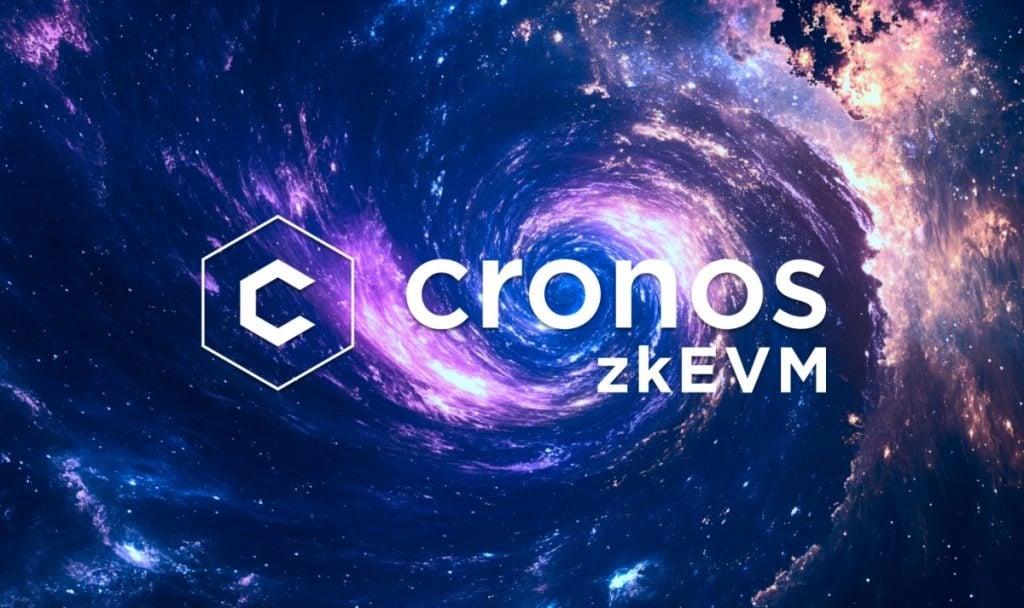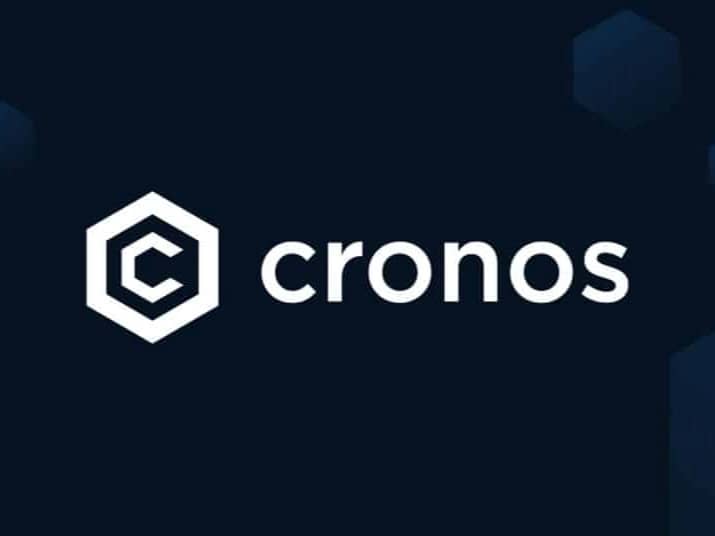Subscribe to wiki
Share wiki
Bookmark
Cronos (CRO)
We've just announced IQ AI.
Cronos (CRO)
Cronos is a blockchain ecosystem that supports decentralized finance (DeFi), gaming, and Web3 applications. It features multiple chains, including Cronos EVM and Cronos zkEVM. The CRO token is used for transactions and staking within the ecosystem. [1]
Overview
Cronos is a decentralized, open-source, public blockchain known for its high speed, energy efficiency, and low transaction fees. It supports the creator economy with Web3 applications like DeFi and GameFi and aims to serve as the foundation for an open metaverse. Cronos’ ecosystem includes three chains: Cronos zkEVM (a high-performance Layer 2 secured by Ethereum), Cronos EVM (Ethereum-compatible and Cosmos SDK-based), and Cronos POS (a Cosmos-based chain for payments and NFTs). Transaction fees are paid in $CRO, Cronos' native currency, or zkCRO, a yield-bearing version of CRO. [2][3]
Cronos EVM
The Cronos EVM chain is built on Ethermint with the Cosmos SDK. It supports the Inter-Blockchain Communication (IBC) protocol, enabling interoperability with Ethereum, Cosmos, and other chains. This setup allows users to bring assets from these chains into Cronos, utilizing smart contract protocols and the broader Ethereum application ecosystem. Using a Proof of Authority (POA) consensus mechanism that balances decentralization with scalable, eco-friendly processing, Cronos aims for high transaction throughput, fast finality, and low fees. This approach offers a more cost-effective and carbon-neutral alternative to Ethereum’s mainnet, enhancing accessibility for decentralized applications and smart contracts. Developers have additional support through Cronos Labs, a Web3 accelerator and ecosystem development fund focused on advancing DeFi, GameFi, and Cronos’ growth. [2][3]
Cronos POS
Originally called the "Crypto.org Chain," Cronos POS Chain is a Cosmos SDK-based blockchain used primarily for $CRO staking and powers several Crypto.com applications, including Crypto.com Pay. The chain is designed to support fast transactions and serves as a public blockchain, facilitating global transactions between individuals and businesses. Transaction fees on Cronos POS Chain are paid in CRO. Cronos POS Chain also aims to advance cryptocurrency spending in everyday settings, addressing limitations of traditional payment systems and existing blockchains that have not delivered a secure, scalable, decentralized solution for crypto payments. [4]
Cronos zkEVM
In 2024, Cronos Labs launched the Cronos zkEVM Chain public mainnet, a zero-knowledge (ZK) Layer-2 blockchain developed in partnership with engineering teams from Matter Labs (zkSync team), Crypto.com, VVS Finance, Fulcrom Finance, and Veno Finance. Built using the ZK Stack, Cronos zkEVM is a key step toward scalability and broader adoption within the Cronos ecosystem. [5]
The key features of Cronos zkEVM include integration with the Cronos user and developer ecosystem and using zkCRO (a liquid-staked version of CRO) as the gas token. The network leverages a zero-knowledge proof system for cost-efficient scalability on Ethereum security, joining other prominent ZK chains in advancing Ethereum scalability. Additionally, it supports a "triple yield" concept within DeFi, combining yield-bearing cryptocurrencies, DeFi returns, and loyalty points alongside native account abstraction for gasless transactions. [5]

Cronos Labs
Cronos Labs is the Web3 startup accelerator and ecosystem development fund for Cronos, supporting the growth of decentralized finance (DeFi), gaming, and related applications within the Cronos ecosystem. Originally known as “Particle B”, Cronos Labs manages a $100 million fund to advance the ecosystem and foster innovation among Web3 startups that leverage Cronos’ technology. [7]
Features
Crono Play
The Cronos Play Gaming SDK enables integration between gaming platforms and the Cronos network, allowing for enhanced player experiences. Through Cronos Play, developers can connect games to Cronos networks, incorporate in-game NFT functionality, and support authentication through various crypto wallets. Currently compatible with Unity, Unreal, and C++, the SDK is planned to expand to additional game engines. [8]
CRO

Cronos (CRO) is the utility token of the Cronos ecosystem, used to pay fees on the Cronos blockchain networks. The decentralized Cronos POS network manages the CRO token, which safeguards the token supply and controls its emissions. The decentralized governance of Cronos POS manages CRO tokenomics via governance proposals. For example, a 2023 governance proposal set up a mechanism whereby a portion of all new CRO emissions will be burned regularly. [9][10]
zkCRO
zkCRO is the native gas token of the Cronos zkEVM blockchain, created by Veno Finance and backed by LCRO. Each zkCRO token represents CRO staked on the Cronos POS chain. The zkCRO/CRO exchange rate adjusts over time to reflect staking rewards or any slashing events on the Cronos POS chain. To obtain zkCRO, users deposit CRO on Ethereum via the Cronos zkEVM Bridge, receiving zkCRO as a yield-bearing token that appreciates relative to CRO through accrued staking rewards. Deposited CRO is staked as LCRO on Cronos POS, with LCRO bridged to Cronos EVM via IBC. This setup provides immediate liquidity, allowing users redeeming zkCRO to access LCRO without waiting through a 28-day unstaking period, with an option to sell LCRO in existing liquidity markets. Furthermore, 50% of validator rewards from LCRO are distributed to VNO depositors on Cronos EVM, and LCRO includes an insurance feature against slashing penalties. [6]
Partnerships
- Crypto.com;
- Dora Factory;
- Caldera;
- Moralis;
- Protofire;
- Chainalysis;
- Blockdaemon;
- RockX;
- Witnet;
- Gelato Network;
- SubQuery;
- OmniHub;
- Band VRF;
- CoinGecko;
- MicroSwap;
- Holdstation;
- Covalent;
- VIA Labs.
Cronos ETP by 21Shares
In May 2025, 21Shares introduced a new Exchange Traded Product (ETP) linked to Cronos (CRO) cryptocurrency, listed on the SIX Swiss Exchange under the ticker symbol CROE. The product is physically backed by CRO tokens and is structured to track the asset's market value, enabling indirect exposure to CRO via traditional financial infrastructure.
The release of the ETP occurred shortly after Crypto.com, a key actor in the Cronos ecosystem, adjusted the classification of over 70 billion CRO tokens in April 2025. These tokens had been previously categorized as burned during earlier token operations between 2018 and 2021. Following this adjustment, Crypto.com disclosed that the tokens were maintained in reserve wallets and would remain outside the circulating supply unless a formal change was announced. The reclassification was presented as a shift in internal accounting methodology, aimed at aligning with revised asset tracking and transparency standards. On-chain data reflected the transfer of these assets to identifiable custodial addresses.
The ETP’s launch aligns with broader initiatives by 21Shares to include blockchain networks that support decentralized applications and interoperable infrastructure within its suite of investment products. The inclusion of Cronos alongside other blockchain platforms in 21Shares’ offerings positions it within a portfolio targeting varied blockchain environments, including those associated with Ethereum and Solana.
The CROE listing is intended to serve institutional and retail investors seeking regulated exposure to assets built on emerging Web3 infrastructures, without direct custody of the underlying tokens. [11] [12] [13]
Canary Capital’s Proposed Staked CRO ETF
In May 2025, Canary Capital, an asset management firm based in the United States, submitted a filing to the U.S. Securities and Exchange Commission (SEC) for the creation of a spot exchange-traded fund (ETF) backed by staked Cronos (CRO), the native token of the Cronos blockchain network. If approved, this product would be among the first ETFs in the United States to track the performance of staked CRO within a regulated structure.
The proposed investment vehicle, titled the Canary Staked CRO ETF, is designed to track the market price of CRO in combination with staking rewards accrued through on-chain participation. The filing outlines a mechanism by which the fund would utilize third-party custodians to hold CRO tokens while participating in the network’s staking protocol to generate yield. These staking returns would be included in the ETF’s valuation, less management and operational fees.
The ETF is expected to be listed on the Cboe BZX Exchange, pending regulatory approval, with Canary Capital overseeing fund administration and compliance. According to available documents, the structure mirrors emerging frameworks used in other digital asset-based ETFs, particularly those tied to proof-of-stake tokens.
Following the public disclosure of the filing, trading activity around CRO increased. On May 31, 2025, the token recorded higher volumes and price movement, which some market observers linked to the ETF announcement. However, the broader context included declining conditions across the cryptocurrency sector during the same period.
The filing aligns with a broader trend among asset managers seeking to develop investment products that combine token exposure with protocol-level yield mechanisms. Similar proposals have been observed for staking-enabled assets such as Ethereum (ETH) and Solana (SOL), as the asset management industry continues to explore cryptocurrency-linked instruments.
As of the time of writing, the SEC has not provided a timeline or decision regarding the proposed ETF. The outcome of this application may influence future regulatory considerations for staking-based ETF models in the U.S. financial market. [14] [15] [16] [17]
See something wrong?
